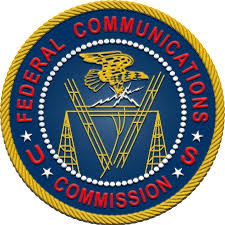States Re-File Lawsuit Against FCC To Challenge Net Neutrality Repeal
One day after the FCC’s formal repeal of net neutrality regulation was published, a coalition of states has re-filed its lawsuit challenging the order.
On February 22, the FCC published its formal action, the “Restoring Internet Freedom Order,” for repealing Obama-era net neutrality regulations. It follows the FCC’s December 14 vote to roll back Title II classification for ISPs. The order will come into effect on April 23 and will effectively remove direct government oversight and regulation of ISPs, allowing them to use unfair tactics in their business.
Among the first initiatives to oppose the repeal was a lawsuit filed by a coalition of 22 states and Washington DC. The initial petition was just a first step in the coalition's attempt to appeal the FCC’s decision. With the repeal now formalized as the Restoring Internet Freedom Order, the coalition has re-filed its petition “to formally commence their lawsuit against the Federal Communications Commission’s illegal rollback of net neutrality.”
The coalition, which includes Attorneys General from New York, California, and Massachusetts, among others, is led by New York Attorney General Eric T. Schneiderman, who was an active opponent of the repeal during the lead up to the December 14 vote. His office published the following statement on the petition:
An open internet, and the free exchange of ideas it allows, is critical to our democratic process. Repealing net neutrality will allow internet service providers to put corporate profits over consumers by controlling what we see, do, and say online. Consumers and businesses in New York and across the country have the right to a free and open internet, and our coalition of Attorneys General won’t stop fighting to protect that right.
The coalition’s lawsuit wasn’t the only action opposing the FCC’s decision. In the wake of the vote, many initiatives were started to preserve net neutrality. Montana was the first to implement state-level net-neutrality regulation by baring non-net-neutral ISPs from government contracts. This was followed by similar actions in New York and New Jersey. The California Senate passed a bill to illegalize non-net-neutral practices among ISPs within the state, but the EFF advised that it will likely be overruled by federal courts. Senate Democrats, meanwhile, have been attempting to assemble the 51 majority they need to pass a repeal of the FCC’s order. To go into effect, though, the act would also have to pass in the House of Representatives, where it has a slim chance of doing so.
Get Tom's Hardware's best news and in-depth reviews, straight to your inbox.
-
Kennyy Evony They cant do anything about it. ISP's already paid for the right to enslave all internet users. The world has come to an end.Reply -
turkey3_scratch Reply20736384 said:They cant do anything about it. ISP's already paid for the right to enslave all internet users. The world has come to an end.
Define "enslave" in this case. Define "end". -
Tanyac Some ISPS here in Australia have been shaping traffic for years. I guess that is the same in the US. The worst here would have been Optus and Telstra.Reply
But in an incredibly fast reaction to NN repeal here the Internet services in Australia have got to be declining to among the worst in the world. Almost every ISP (if not all) are now shaping traffic, giving specific traffic types and services for specific groups of customers priority while slowing others.
The ACCC directed ISPs to stop selling products based on speed and start advertising products on what speeds you might be lucky enough to achieve during peak times.
Problem is, we purchased a tier 5 product which used to be 100d/40u, but at the absolute best we get 40Mbps down off peak. And it's the same across all carriers, including Optus, Telstra, Vocus, TPG and even AussieBBS (Who would be among the dearest @ $150 for an advertised product of 100/40 but delivers no more than other ISPs.
I'm not sure that repealing the repeal will achieve anything. ISPs now dictate the internet around the world, and as much as they might complain about "policing the internet" they really do want that responsibility.
Very sad, indeed.
